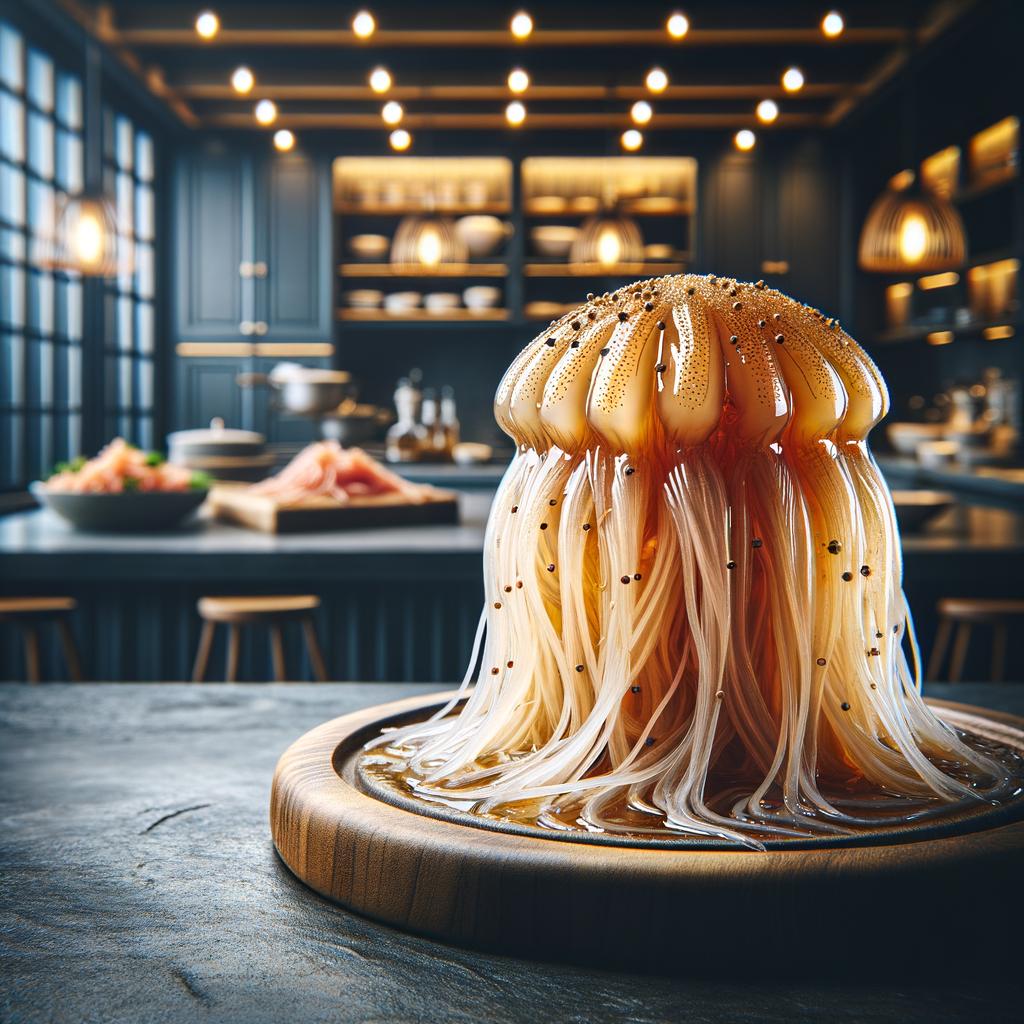Marinated Jellyfish

Description Marinated jellyfish, a delicacy in many Asian cuisines, is a fascinating ingredient that truly embodies the essence of the ocean. Its appearance is unique, often translucent with a slight iridescence, and it has a gelatinous yet crunchy texture, quite unlike any other food. The flavor profile of marinated jellyfish is primarily influenced by the marinade, as the jellyfish itself has a very subtle taste, often described as slightly salty and sweet. What sets this ingredient apart is its unique texture, a delightful crunch that is wonderfully surprising given its jelly-like appearance.
Primary Uses Marinated jellyfish is a versatile ingredient used in a variety of dishes across Asian cuisines. It's often served as a cold appetizer in Chinese banquets, tossed in a sesame oil and vinegar dressing, or incorporated into salads with fresh vegetables and a tangy vinaigrette. In Japanese cuisine, it's a common ingredient in sushi and sashimi. Beyond its culinary uses, jellyfish are also recognized in traditional medicine for their potential health benefits, including improving circulation and reducing arthritis pain.
History The history of jellyfish as a food ingredient dates back hundreds of years, particularly in China, where it was considered a delicacy for the rich and royal. The process of preparing jellyfish for consumption is a time-honored tradition, involving a rigorous process of desalination, dehydration, and marination. Over time, the use of jellyfish has spread to various parts of the world, with its popularity increasing in line with the global interest in sustainable and unique food sources. There's a romantic notion associated with the harvesting of jellyfish, as it's often done under the moonlight, reflecting the delicate balance between man and nature.
Nutritional Information Nutritionally, marinated jellyfish is low in calories and fat, making it a good choice for those watching their weight. It's a rich source of collagen, which is beneficial for skin health, and contains a good amount of minerals like magnesium, potassium, and iodine. Compared to similar ingredients like squid or octopus, jellyfish has a lower protein content but offers a unique texture and is a more sustainable seafood choice. However, it's important to note that the sodium content can be high due to the marination process, so it should be consumed in moderation.

